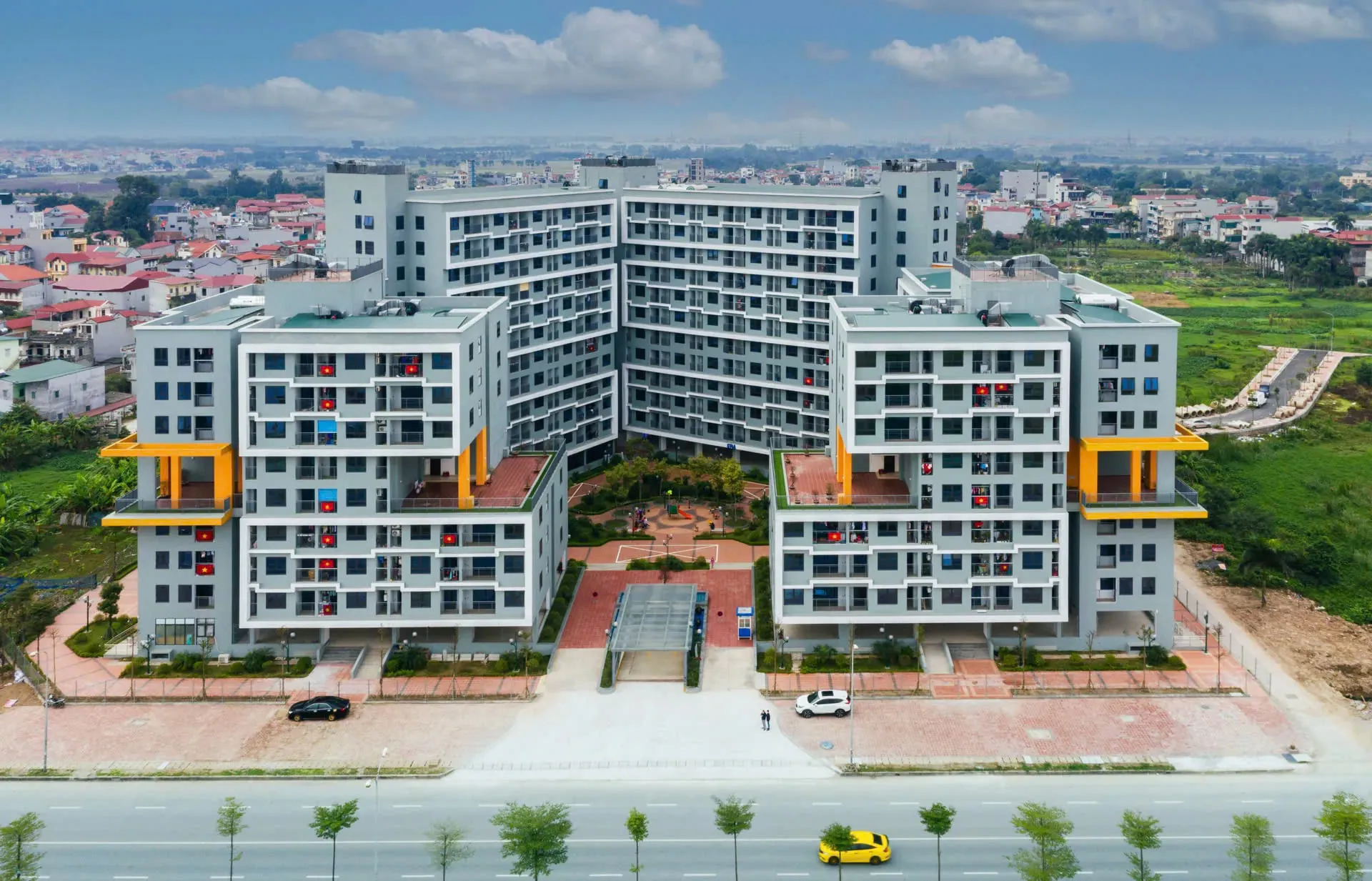Vietnam gives green light to national housing fund
The Housing Development Fund is expected to stimulate the construction of affordable housing for low- and moderate-income buyers.
Deputy Prime Minister Ho Duc Phoc has approved a proposal to set up a national housing development fund aimed at boosting the construction of affordable homes.
The fund, which will be extra-budgetary, will focus on providing housing for workers and people under 35 once it comes operational following the approval in-principle given by Deputy Prime Minister Ho Duc Phoc.

A social housing project in Dong Anh District, Hanoi. Photo: Kinh te & Do thi Newspaper
Funding will come from domestic and international investors, proceeds from the mandatory 20% social housing in commercial housing projects, and mobilized from companies, organizations, and individuals.
The fund will be administered by the Ministry of Construction and provincial people's committees.
The deputy prime minister instructed the Ministry of Construction to gather feedback from enterprises, organizations and experts to refine the fund's operation mechanism.
A final proposal will be submitted to the government and the National Assembly for approval.
Earlier, in late May 2024, the Party Central Secretariat issued Directive No. 34 to strengthen the Party's leadership in housing development under the current conditions.
Following the directive, the Prime Minister instructed the Ministry of Finance to study the establishment of a national housing fund or an appropriate financial institution to ensure the long-term, sustainable development of affordable housing.
The Ministry of Construction was tasked with studying the establishment and operational framework of a state-owned enterprise specializing in affordable housing development.
In its report to the government, the Ministry of Finance stated that financial mechanisms and policies to support affordable housing development already exist at both the central and local levels, along with loan programs from commercial banks. However, the main challenge is the limited availability of preferential loans.
To ensure feasibility and save time, the Ministry of Finance suggested that loans for affordable housing development be provided through the existing mechanism, rather than creating a new mechanism dedicated to this purpose.
The Ministry also recommended that both central and local governments prioritize resources for the existing mechanisms to help these institutions expand their loan programs.
The Politburo later agreed in principle to issue a pilot resolution outlining special mechanisms and policies for the development of affordable housing between 2025 and 2030, and called for greater mobilization of both government and private resources to accelerate construction and achieve the goal of building at least one million affordable homes by 2030.
A draft National Assembly resolution, currently under consideration by the National Assembly Standing Committee, outlines the establishment of a National Housing Development Fund to support key areas such as compensation and resettlement costs, investment in technical and social infrastructure, and financial support for social housing developers.
Based on a review of current laws and mechanisms at both the central and local levels, the Ministry of Finance submitted a proposal for a financial mechanism to support affordable housing development and a roadmap for the establishment of the National Housing Development Fund.








